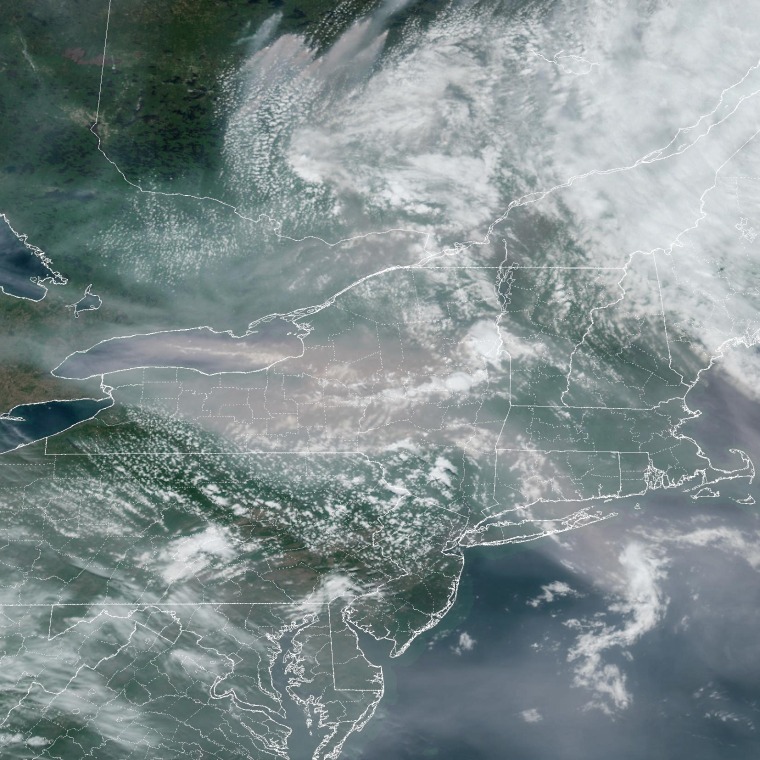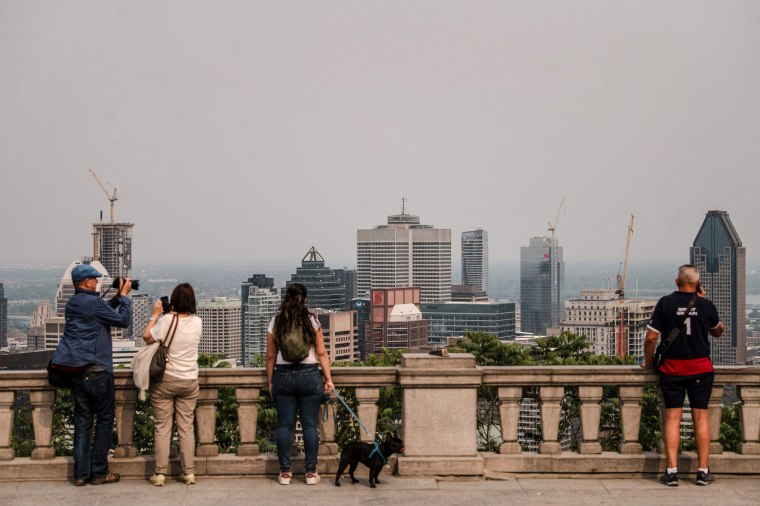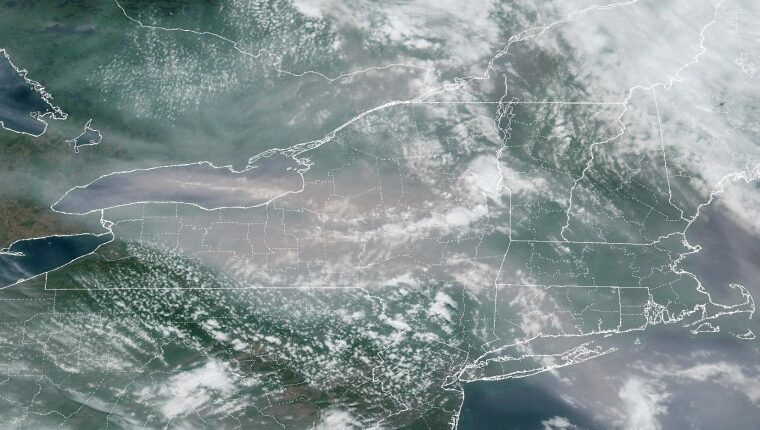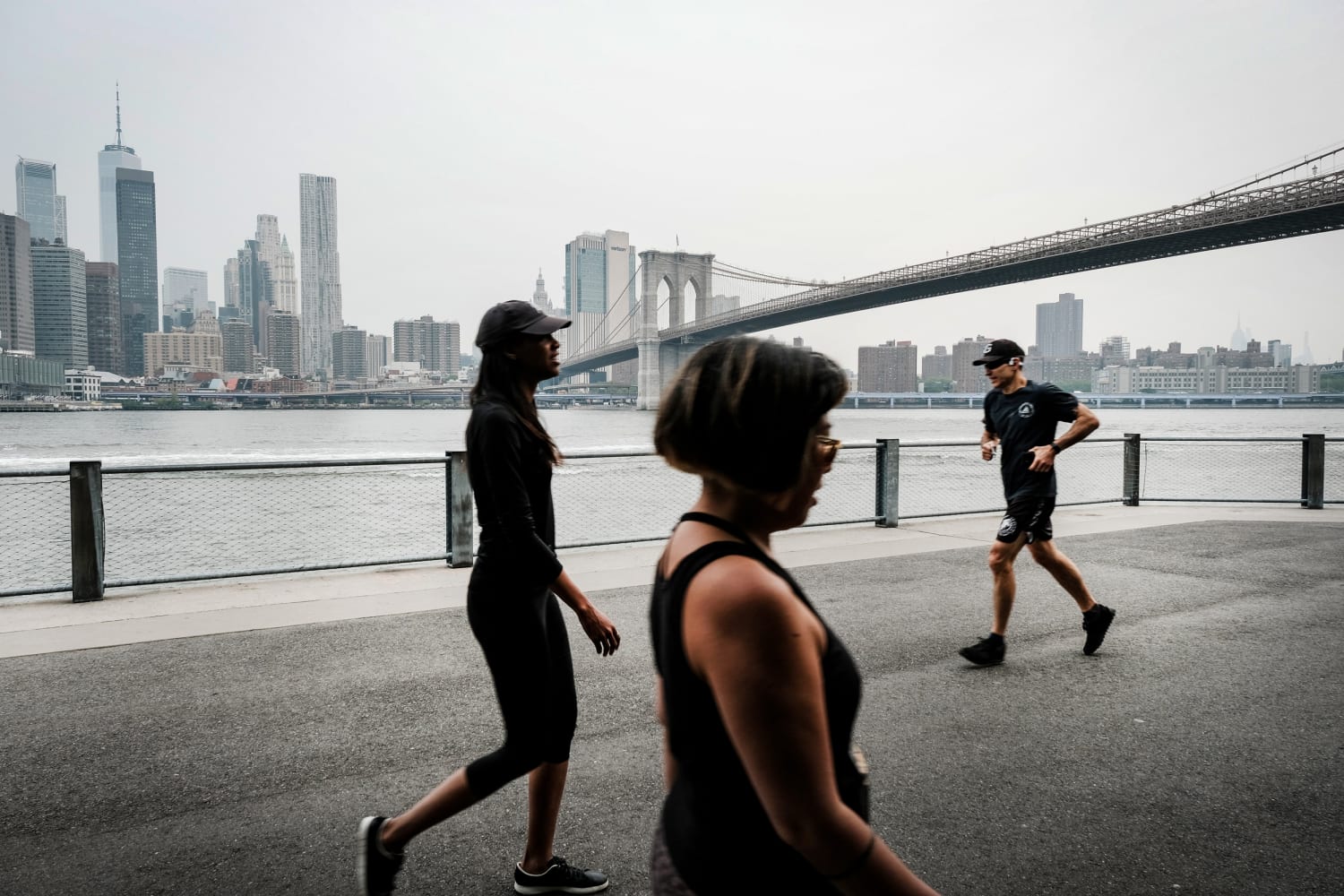Air quality advisories are in effect for up to 100 million people in the United States on Tuesday, ranging from the Midwest and Texas up into the Northeast, including Boston, New York City and Philadelphia.
In the Northeast, the poor air quality is the result of wildfires raging in eastern Canada, sending smoke wafting into the U.S. In some areas, the smoke is so dense that people can smell it in the air and the skies appear hazy.
Beyond the Northeast, high concentrations of ground-level ozone — also known as smog — are driving unhealthy air quality levels in a number of urban areas across the country.
What causes poor air quality?
Poor air quality can be caused by any airborne “irritant” — a particle or substance in the air that is harmful to a person to breathe in, according to Dr. Purvi Parikh, an allergist and immunologist at the Allergy & Asthma Network, an advocacy group for people with asthma, allergies and related conditions.
Some examples are air pollution, including from vehicles and carbon emissions, as well as rising ozone levels, Parikh said.
Natural disasters, like wildfires, often cause short-term spikes in poor air quality as the smoke, which contains carbon monoxide and other dangerous chemicals, enters the atmosphere.
“All of these things can be harmful because they can cause particulate matter that if you breathe in, can go deep into your lungs,” she said.
The Environmental Protection Agency uses the Air Quality Index to report air quality. It ranges from 0 to over 300, with levels 50 and below considered the healthiest. When levels exceed 150, the general population may start to experience symptoms.

How can poor air quality hurt health?
Many of the health issues people see from poor air quality, in general, can overlap with health issues people see from wildfire smoke, said Dr. Wynne Armand, a physician at Massachusetts General Hospital and associate director of the MGH Center for the Environment and Health.
Air pollution from wildfire smoke can make breathing difficult for anyone, but especially for young children, older adults, pregnant women, and people with asthma or other pre-existing respiratory conditions, she said.
In the short term, it can also cause irritation to the eyes, nose, throat and lungs, as well as an increased risk of respiratory infection.
Longer term, exposure to air pollution is associated with several chronic health conditions, including:
- Severe asthma
- Preterm birth
- Heart disease
- Stroke
- Lung cancer
- Dementia
- Lower IQ in children
Smoke can be especially dangerous for pregnant women because they usually have diminished lung capacities due to their growing bellies, Parikh said.
How can I protect myself when the air quality is bad?
Experts advised checking air quality alerts regularly. AirNow.gov, the EPA’s website, allows people to track air quality by entering their ZIP codes. Many smartphones have apps that also track air quality.
Brady Scott, a fellow at the American Association for Respiratory Care, a professional organization for respiratory therapists, recommended that people stay indoors as much as they can, with doors and windows closed. That includes for activities like exercise, which can cause stress on the lungs.
People with respiratory-related health conditions, including asthma, should monitor their symptoms closely, he added. They should also make sure their medications, like inhalers, are available or not expired.
“People know their bodies really well. If they see some changes they believe are related to bad air, perhaps they need to contact a physician or advanced practice provider,” Scott said.

Parikh advised people to keep their homes well ventilated. People who need to go outside can wear a mask, such as an N95 respirator, which helps filter out particulate matter in the air, she said.
“Believe it or not, masking just like we did with Covid can be helpful in acting as a barrier between you and reduce the amount of particulate matter that you breathe in,” she said.
Armand advised against dusting or mowing your lawn on days when the air quality is poor. Burning candles or using a gas stove can also contribute to poorer air quality on these days.
People should seek medical attention if they experience a cough, trouble breathing, chest pain, wheezing, or hear a whistling sound in the chest, Parikh said.
Is poor air quality bad for pets?
Absolutely, according to Parikh.
“Other mammals, they suffer from many of the same lung conditions that humans do,” she said.
Scott said people should keep their pets — like cats and dogs — indoors as much as possible.
“If pets are outside, they’re running around outside or if they’re spending most of their time outside, it seems like it would probably create some irritation in their breathing and their airways and lungs as well,” he said.
Follow NBC HEALTH on Twitter & Facebook.
Source: | This article originally belongs to Nbcnews.com










